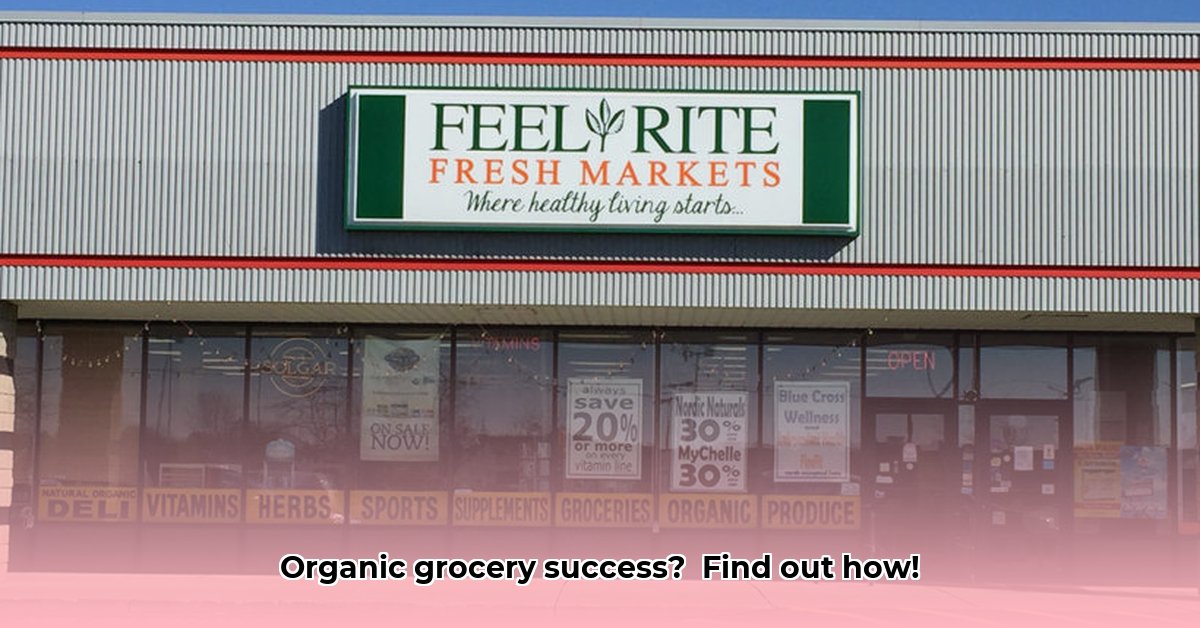
Feel Rite Buffalo: A Western New York Success Story
Feel Rite Fresh Markets, a Buffalo, NY institution, isn't your average grocery store. Since 1971, it's been a beloved neighborhood staple, demonstrating the enduring power of a commitment to organic food, strong community ties, and employee well-being. This case study explores Feel Rite's recipe for success, examining its business model, challenges, and strategies for continued growth within the competitive organic food market. We'll uncover the secrets behind their longevity and explore the lessons other businesses can learn from their journey.
More Than Just Organic Groceries: The Feel Rite Approach
Feel Rite's success transcends simply selling organic produce; it's rooted in a holistic business philosophy. Their dedication to locally-sourced organic food isn't just a marketing tactic; it's integral to their identity. They actively participate in the community, sponsoring events and partnering with local organizations, fostering genuine connections with customers and building a fiercely loyal following. This dedication extends to their employees, who are treated as valued team members, contributing to a positive work environment and exceptional customer service. This interconnected approach – organic products, community engagement, and employee well-being – creates a synergistic cycle of success.
How has Feel Rite's community engagement impacted their bottom line? While precise figures aren't available, anecdotal evidence suggests a positive correlation between community involvement and customer loyalty. This type of approach fosters brand ambassadorship, driving organic growth and reinforcing the positive image of the store.
The Challenges of Staying True to Your Values
Maintaining profitability while upholding high standards in a competitive market presents ongoing challenges for Feel Rite. Large supermarket chains often undercut smaller stores with lower prices, necessitating constant innovation and strategic adaptation. As a family-owned business, access to capital for expansion can also be limited. This highlights the critical balancing act between maintaining core values and adapting to market dynamics.
Strategies for Growth: Adapting While Staying True to the Mission
Feel Rite's approach to growth centers on adapting to market trends while remaining true to its core values. Their strategies include:
Enhanced Online Presence: Expanding their online presence to include online ordering and potentially home delivery options to reach a wider audience and enhance customer convenience.
Strategic Partnerships: Strengthening relationships with local farmers and delivery services to improve the supply chain, reduce costs, and broaden reach.
Refined Pricing Strategies: Carefully analyzing their pricing strategy to achieve competitiveness while still maintaining high standards for quality and fair pricing.
Targeted Marketing: Highlighting Feel Rite's unique qualities – their commitment to organic products, community engagement, and local sourcing – through focused marketing initiatives.
What percentage of Feel Rite's sales come from local farmers? While specific data is unavailable from the provided text, the emphasis on local sourcing suggests a significant portion of their inventory originates within the community.
Weighing the Pros and Cons of the Feel Rite Model
Feel Rite's model presents both advantages and disadvantages:
| Pros | Cons |
|---|---|
| Strong brand recognition & customer loyalty | Limited growth potential due to family ownership |
| Deep community engagement and support | Significant competition from larger grocery chains |
| Focus on high-quality, organic and local products | Difficulty maintaining profitability with high standards |
| Positive employee morale and low turnover | Potential vulnerabilities in the supply chain |
| Strong commitment to ethical and sustainable practices | Need for continued innovation and market adaptation |
The Future of Feel Rite: Adapting for Continued Success
Feel Rite's long-term success depends on its ability to adapt while upholding its core values. Their brand recognition and community connection are powerful assets, but strategic investments in technology, operational efficiency, and potentially measured expansion are key for future growth. Their unwavering commitment to organic, local, and community-focused business practices remains their greatest strength. The focus isn't just on if they can adapt, but how they will continue to innovate strategically while staying true to their mission. Their success serves as a compelling example of sustainable retail practices within the organic grocery sector.